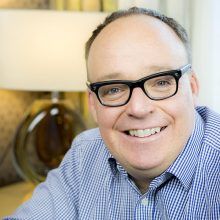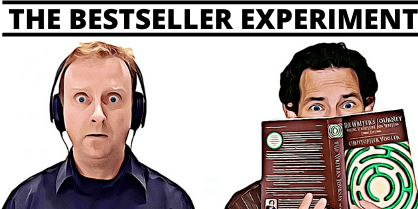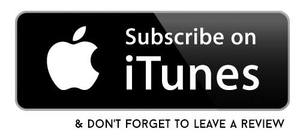EP21: Obscurity to Million-Selling Indie Success | Mark Dawson

PODCAST
Thanks for listening and joining us. Have some feedback you’d like to share? Leave a note in the comment section below.
SPREAD THE LOVE
If you enjoyed this episode, please share it using the social media buttons you see at the bottom of the post.
SUBSCRIBE, RATE & REVIEW ON ITUNES
Please do subscribe on iTunes and leave an honest review for The Bestseller Experiment Podcast on iTunes. Ratings and reviews are extremely helpful and greatly appreciated! They do matter in the rankings of the show, and we read each and every one of them. Don’t forget, when subscribing to the show on iTunes you will get automatic updates.
If you have any questions, you can contact us here.
EPISODE HIGHLIGHTS
- Bestseller Experiment: Facebook | Twitter (@bestsellerxp) | Instagram | Pinterest
In this episode you will discover…
-
Why you need a mailing list.
-
A daily routine that balances creativity and business.
-
The power of an online ad campaign
-
The big changes coming in self-publishing!
USEFUL LINKS
- Scrivener – Software for Writing
- Co-Hosts:
- Bestseller Experiment’s Vault of Gold. Sign up to get your free Writer’s ebook
- Question Mark: Have a question you want answered on the show? Click here.
EPISODE TRANSCRIPT (HIGHLIGHTS)
Mark Dawson is another great indie author success story. He had been published by a mainstream publisher, but to little success. After a friend introduced him to Amazon’s Kindle Direct Publishing, he decided to give it a go. Now, over two million downloads later, he is one of the UK’s most successful indie authors and we were delighted to speak to him at Amazon’s recent Amazon Academy Conference in London.
We started by talking about a blog post where he had celebrated his millionth download.
I don’t blog very much, not nearly as much as I should do. I’d had my millionth download at that point, these days it’s nearer two million now.
What prompted the move to indie publishing?
Well, first of all it wasn’t difficult to beat the level of success I had the first time around. I didn’t sell many books. Partly, because they weren’t very good, and also because I couldn’t really work out what was being done to promote and merchandise the books. They were published, and they disappeared again without making much of an impact.
The difference now is I get to do everything. I’m in charge of everything in the process, from writing the book, then to market it, produce it, to advertising it, promoting it, to reaching out to fans.
There’s no one standing between me and my readers, unless I want them to. It’s a tremendously liberating way to publish these days.
It’s a lot of work for you. What’s your daily routine like?
I tend to split it into two parts. I’m creatively freshest in the morning, so I’ll do my words in the morning. I aim for between two- and three-thousand words a day, which is not that ambitious. I can usually hit that. I’ll take a run at lunchtime, or go for a walk, or just do something to meditate for a bit, and then I’ll switch into using a different kind of energy with the business side of things. I’ll be doing advertising campaigns — I’m quite big on Facebook ads — I’ll look at Amazon’s new ad platform, I will answer reader emails, I’ll look at covers, all of that kind of stuff. And then, maybe at the end of the day, I’ll do a bit more writing. If I hit that kind of pattern, I’ll everything done I need to get done.
Is that a skillset you had to learn?
I don’t think it’s a question of learning something. I love doing what I do. It’s an absolute privilege to be able to make a very good living from selling stories to readers around the world. I have to pinch myself sometimes just to remind myself that’s what I’m doing. I’ve been a lawyer before, so I know what it’s like to have a desk job that you don’t like, so I’m very fortunate to be able to do this. It’s not a chore. It’s something I love every single minute of what I do. I find that motivates me to sit down and put the hours in. If you don’t enjoy writing, then you definitely don’t want to be a writer, you want to be doing something else.
Not everyone will also love the business side of things as much, but it’s a reality that to be successful at a decent level, you need to at least have the ability to change hats and to do a little bit of the promotional, business side of stuff as well.
You spoke of a tipping point. How do you know when you’re a success?
The easiest way to judge that is by how much money Amazon and the other platforms are paying you. I’ll be two years as a full-time, self-employed writer in November 2016 (a few days after we recorded this conversation). In January 2014, my wife was on maternity leave and I was starting to do quite well, I was earning about as much from writing as I was from my day job. And so we had a conversation that, if I could sustain that level of sales for twelve months — she wasn’t working, so I needed to support the family — then we’d look at going full time. She was very supportive. She would have pushed me to go much quicker than I did. Throughout that year, every month, it incrementally increased. January was the same, February, maybe twice as much… By November, when I quit, I was making a good five figures a month from writing, and though I’m naturally quite cautious, at that point I couldn’t really ignore the fact that this was now very successful, and I could take what was, at that point, a very reasonably small risk and go full time.
How many books had you published by that point?
About fifteen. Obviously, they’re not all selling at that huge rate, but I tend to write in series, so that would be a good piece of advice for you guys:
It’s easier to market a series, than it is to market a standalone book.
I survey my readers all the time, so I know my read-through rates are quite big, so if I can hook you with my first book in a series, there’s a reasonably good chance that you’ll buy a few more. My readers will buy at least five in a series, typically. Once you know that kind of information, then you can start to make decisions on marketing and all that kind of good stuff.
That’s the kind of information you might not have had access to with a mainstream publisher.
I’m not sure they are looking for that. They certainly don’t speak to their readers to the same degree that I do to find out what they like and what they don’t like. That is one of the real benefits of independently publishing through a platform like Amazon. All the other guys, too, they’ll provide you with almost instantaneous feedback by way of sales data. I was taking daily records of all sales until about eighteen months ago, when it was taking me two hours just to go through all the platforms to do that. I only do that once a month now. It’s actually quite liberating. Writers are constantly seeking validation: Have I sold? Have I sold? Have I sold?
What are the best ways of reaching out to your readers?
Open all channels. Make it really easy for people to get to you. It could be in the backs of your books, having easy hyperlinks out to your website, or to your mailing list.
The main piece of advice: all authors these days need to have a mailing list. The most important aspect of any creative professional’s career is to go directly to your readers, and not to rely on the platforms to do that for you.
I love Amazon, they’ve changed my life, but Amazon is not about to give me the email addresses of everyone who’s ever bought my books. That’s proprietary information, and they’d be breaking the law if they did that. You want to start to reach out to them by getting their email addresses and using a mailing list.
Social media is a big thing. I’m very big on Facebook. I’m primarily known in the author community as the guy who does Facebook ads, and teaches other authors how to use them.
I spent a quarter of a million on Facebook ads, and that can lead to an explosion in sales and sign-ups and all that kind of stuff.
Hang on, back up: a quarter of a million pounds on Facebook ads? What’s the return on that?
Double, usually. That’s what’s really cool about advertising these days. Fifteen years ago, an advertising campaign would not necessarily immediately be rewarded with sales. It’s awareness, this whole seven touches of advertising, to eventually prime people to purchase down the line. With a directed social media campaign you can — and it’s reasonably easy — get sales immediately. You get the ad, the ad links directly to the Amazon page, and you can generate sales. And, even more cool, you can track them individually, so you can work out how effective the ads are in terms of performance. It sounds like a big number, and it is a big number when I say that, but it’s not a sunk cost. That’s an investment that’s paying me back almost immediately.
If a major publisher came knocking at your door, would you be home to them?
It depends where they are and what their offer is. I’m a pragmatic guy. I sell foreign rights, I do deals with big publishers in Germany and France and Spain, the Czech Republic, and others coming down the track. For English rights, which is the bulk of where income comes from, if Penguin came to me and said they wanted to buy my John Milton series, I would certainly open the door to them. On the one hand, the blessing, and on the other hand, the curse, is that I know exactly what those books are worth. I know what they’ve generated over the last two or three years, and I can project what they might make over the course of the future two or three years. So any offer I would need to consider would need to bear that in mind. For all the will in the world, when I write, and I think I write pretty good books, and my readers like them, but most people listening to this podcast won’t know who I am. If you put yourself in the shoes of an editor at a big, traditional publisher, they would need to make a big, seven-figure offer for those books, and it’s just not going to happen. If it did happen, then I’d consider it, but realistically it’s very unlikely.
Do people not know who you are because the mainstream press don’t review indie authors?
That may not be true. Because I advertise so extensively I have got to the stage know where, say, my mum has emailed me and said, ‘This woman I used to work with, who didn’t know that you were an author, asked me about your books yesterday, because her son had seen a Facebook ad… or had read your books.’ So, there is a bit of that now. I’m not focused particularly on the old ways of promotion. I do have an agency working for me on PR, and we are trying to get some reviews. There’s still some value in having a Sunday Times review. It’s definitely not essential, but when you get to a certain level it can be useful social proof that you’ve had that. Maybe I’m being self-deprecating? Maybe more people know about me than I think that they do.
What changes do you see coming in the next few years?
The technology penetration may have peaked in certain markets, so things like Kindle sales have plateaued probably, but I don’t think eBook penetration is anywhere near where it’s going to be. I think the future is mobile. If you look at every iOSX device, it’s now pre-loaded with iBooks, the Kindle app is great on all devices, a really seamless way to consume media. Audio is going to be increasingly big, so I’m quite big on companies like ACX, an Amazon company that enables books to be narrated and produced. I also do deals with Audible Studios as well, so they do the production and the promotion, so that makes sense to me, to offload that to the experts. We’re nowhere near a tipping point yet, in terms of where the industry’s going. I wouldn’t be buying shares in paper right now, I’d be more interested in buying shares in Amazon and Apple and those guys.
What software are you using these days?
I use Scrivener. I’m a very, very big fan of Scrivener, a UK-based company. I was writing on Word for a long time, but Word is not configured for hundred thousand word documents, it just isn’t. It’s great for editorial work, but it’s useless for those kinds of big documents. Scrivener is not a secret anymore, a lot of the big authors use Scrivener, certainly a lot of the big indies that I know are using Scrivener, and as soon as I switched over, my productivity went through the roof. The organisational abilities, writing out of sequence, everything is so powerful. I’m a massive, massive fan.
SHARE THE MEMES…
VIDEO TRAILER
SHARE THE PODCAST WITH A FRIEND
SUBSCRIBE TO THE BESTSELLER EXPERIMENT PODCAST!


